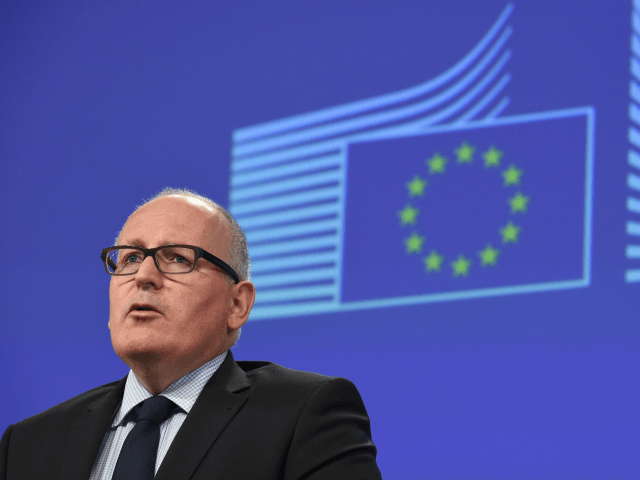ANKARA, May 27 (Reuters) – The European Union and Turkey held constructive talks on the conditions for granting visa-free travel for Turks, and EU experts will visit Ankara next week to work on removing the last obstacles, the European Commission’s vice-president said on Friday.
Frans Timmermans said on Twitter after talks with Turkish Foreign Minister Mevlut Cavusoglu and EU Affairs Minister Omer Celik that they shared a “joint determination to overcome last remaining obstacles to visa liberalisation”.
Brussels has promised Turks visa-free travel into Europe in return for stopping the flow of illegal migrants to the bloc, after more than a million entered the EU from Turkey last year. While Europe is desperate for the deal to work, it also insists Ankara meet 72 criteria, including narrowing the scope of its broad anti-terrorism laws to meet European standards.
Rights groups and some European officials say Turkey uses the laws to stifle dissent, prosecuting academics and journalists for expressing peaceful opinions, while President Tayyip Erdogan says Turkey needs its legislation to fight Kurdish insurgents and Islamic State.
The disagreement has threatened the future of the migrant deal and put pressure on Ankara’s relationship with the bloc. Erdogan, who spearheaded Turkey’s drive for EU candidacy, has threatened it could go its own way if Europe failed to agree.
Turkish foreign ministry officials confirmed that officials from Ankara would meet with their European counterparts next week to determine a roadmap on visa liberalisation.
Wrangling over the anti-terrorism law has cast doubt on whether the end-June target date for the visa deal can still be met. Officials and diplomats told Reuters the deadline looked likely to be missed, and German Chancellor Angela Merkel said after talks with Erdogan this week that it may take longer but she was confident both sides would stick to the migrant pact.
Other sticking points remain, including over a data protection law and the creation of an independent data protection authority.
Keeping the migration accord on track is a key priority for several EU member states, especially the bloc’s biggest power, Germany, which took in most of the 1.3 million refugees and migrants who reached Europe last year.
(Reporting by Tulay Karadeniz; Writing by Paul Taylor and David Dolan)

COMMENTS
Please let us know if you're having issues with commenting.